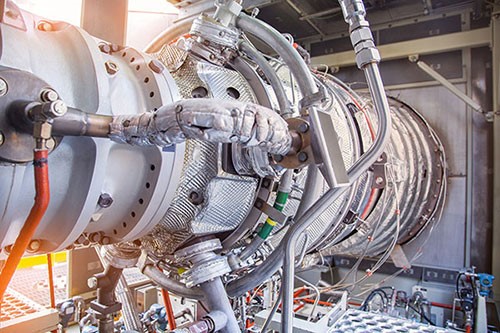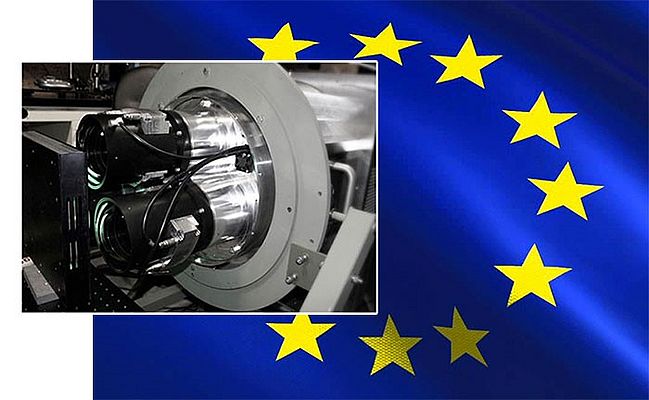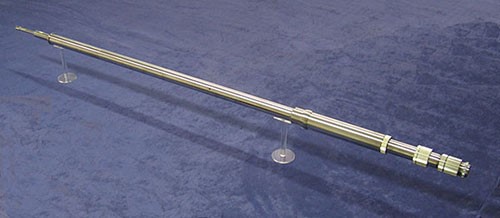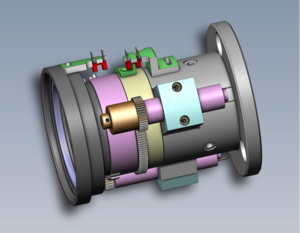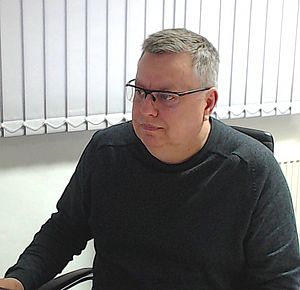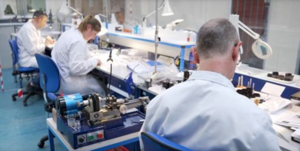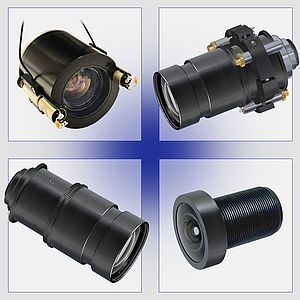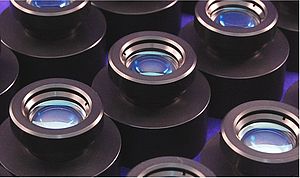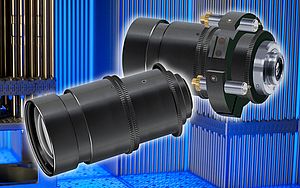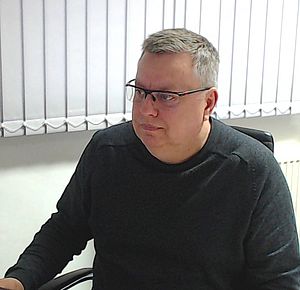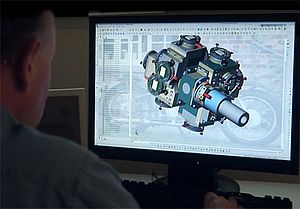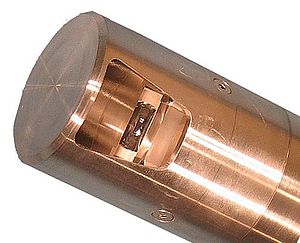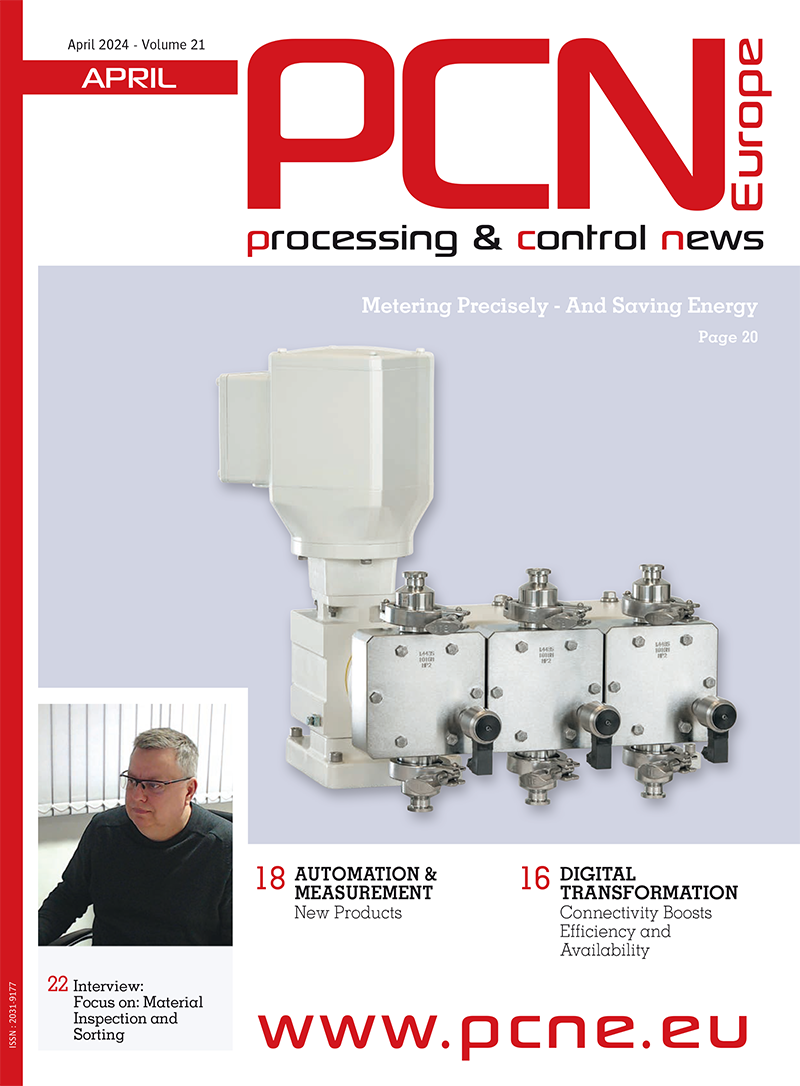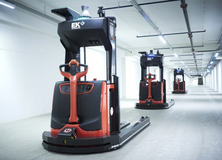PCN Europe: What environmental factors require an industrial customer to use a ruggedised rather than a standard lens to monitor a process, and what can happen if they don’t?
M. Pontin: Any application that is subject to adverse conditions such as vibration, shock, temperature, pressure, radiation, fluid ingress or a combination of several of these conditions would benefit from a ruggedised lens. Failure to account for the environment and operating conditions in which an optical system is required to work in can result in the system failing or at the very least, severely reduced performance.
PCN Europe: What industrial areas have benefitted from the application-optimised ruggedised lenses you develop?
M. Pontin: In recent years - Resolve Optics has developed several ruggedised lenses for material sorting applications where the lenses have to withstand constant vibration and airborne particulates. In the Nuclear industry we are a leading supplier of radiation resistant fixed focus and zoom lens for remote inspection of power plant and reprocessing areas. These lenses not only need to withstand high levels of radiation but also at times heat. In a military scenario – operators demand much higher reliability than for commercial products. Resolve Optics MIL-SPEC lenses have much higher life expectancy than regular commercial grade lenses. The defective rate is also extremely low. producing a lens or lens system for military use requires careful consideration of its resistance to vibration, shock, temperature and water ingress in addition to ensuring high reliability and top performance.
PCN Europe: Can you describe the challenges you were asked to solve in developing an optimised lens for a specific industrial project?
M. Pontin: Resolve Optics has supplied several high temperature Short Wavelength Infrared (SWIR) endoscopic viewing systems to enable inspection of the blades in a gas turbine while in operation. For this application we were asked to design an endoscope that could withstand high frequency vibration, heat and pressure. Consequently, we had to develop a method of holding the optical elements in place. The securing method had to account for extreme vibration and cope with material expansion due to the high temperatures. The solution used bi-metallic clamp rings that expanded and contracted at an equal rate to the optics and metal housing. This ruggedised construction method has enabled the endoscope to withstand the environment it was required to operate in.
PCN Europe: What are the typical reasons - industrial users choose to move from an off-the-shelf solution to a custom optical design?
M. Pontin: Increasingly we are approached by camera, optical instrument and sensor companies who want to switch to a custom design to ensure their security of supply. Off-the-shelf lenses are a commodity where changes in the market beyond your control can result in the optical component becoming difficult to find or even made obsolete. A custom design lens from Resolve Optics will be available to the customer for as long as they require the lens. In fact, we have just received and supplied a batch of specialist lenses to a customer who received an order for a ‘heritage product’ 10 years after receiving their previous order. Other common reasons for adopting a custom design is to achieve better performance and or a longer life cycle as afforded by a lens designed to withstand the harsh environment it is used in.
PCN Europe: You work in a large range of industries but are a market leader in the nuclear industry. What experiences can you bring from this demanding market to help develop optimised optics for other industrial sectors?
M. Pontin: The nuclear market is a highly regulated market where systems integrators and users demand that the lenses they choose are able to work effectively and survive the harsh radioactive conditions. The last thing a nuclear customer wants is for a lens to fail mid-inspection as this would lead to delays and the significant costs of replacing items that are now contaminated. The nuclear industry requires lenses and optical systems that can withstand cumulative exposure to high levels of radiation and sometimes endure extreme temperatures. Resolve Optics Ltd has decades of experience of developing lenses and optical systems for applications in hazardous or difficult-access nuclear environments. Our team has worked with leading companies in the nuclear industry to provide radiation-resistant, high-performance solutions including fixed focus and zoom non-browning lenses, throughwall endoscopes as well as vision and remote inspection camera systems. Resolve strives to ensure that all our lenses are designed for the environment they must work in and that every lens is manufactured and tested in accordance to our strict assembly instructions.
PCN Europe: As a specialist company, in the market for a long time, what do you see as key optical design trends for improving industrial process measurements in the coming years?
M. Pontin: I see the demand for higher and higher resolution as being the main challenge for improving industrial process measurements in the coming years. To fulfil this trend - sensors have to become larger and the pixels are getting smaller and smaller. I see this as good for the custom design business as commercially available off-the-shelf lenses matched to these demanding optical requirements are extremely limited.
PCN Europe: Thank you for your insights!



